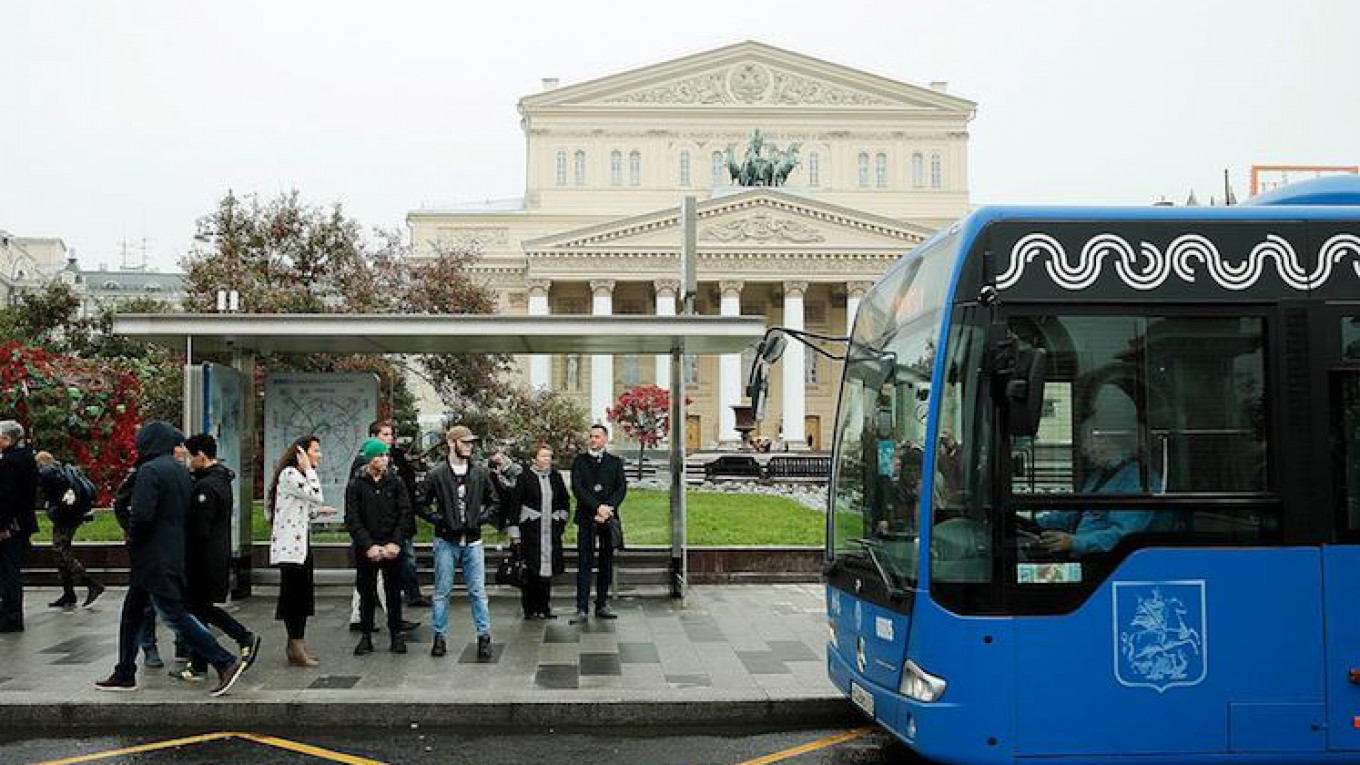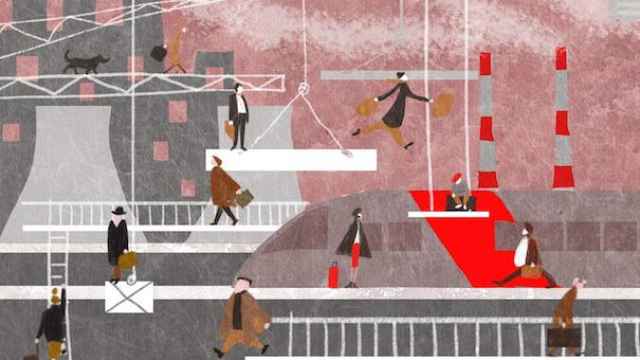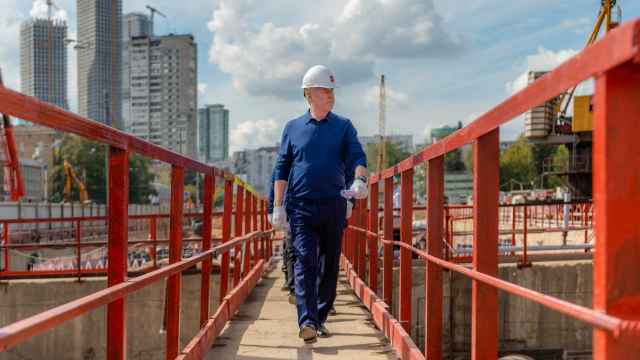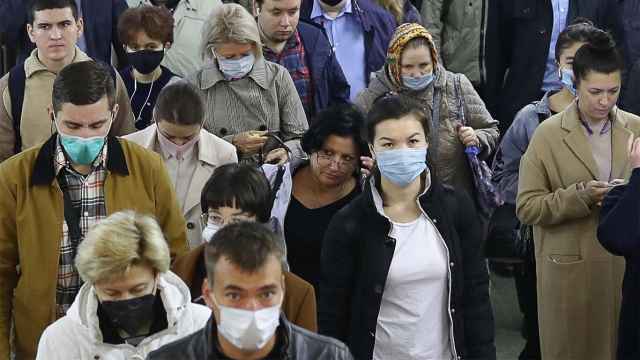A small group of commuters stands chattering under the imposing compound that houses the Russian Security Service, their hot breath seeping into Moscow’s cold autumnal air like fumes from an exhaust-pipe. Suddenly, headlamps pierce the darkness and the group clamber aboard. The frenzied pushing and shoving is reminiscent of Black Friday sales.
This is the scene from the Lubyanskaya Ploshchad bus hub, the center of Moscow’s new 350 kilometer Magistral (“highway”) network for public transport, which launched on Oct. 8. The Magistral project is the culmination of three years of trial and error, and marks the first major change to Moscow’s bus system in over two decades.
Mikhail Blinkin, a transportation expert at Russia’s Higher School of Economics says that the Magistral is an attempt to “stratify” the irrational networks of Moscow’s public transport system. Now, instead of disparate and outdated routes, Muscovites have a main line, which connects to the most popular attractions in the city.
Although the total number of routes within central Moscow remains steady at 37, they are now split into three categorical designations: main, regional, and social. Buses on the main routes run at intervals of 5-10 minutes and are intended to connect Moscow’s major districts both to the city center and to one another. These lines are fully fledged alternatives to the Moscow metro and interconnect at Lubyanskaya Ploshchad.
Regional routes are shorter, and run at less frequent intervals of 10-15 minutes. These lines connect remote areas of the city to the main transport networks, providing Muscovites with more access to the city’s central districts.
Finally, social routes are intended to take passengers to social institutions such as clinics, hospitals, passport offices, and so on. There are seven of these routes in total and buses run every 30 minutes.
It is hoped that the new system will increase the popularity of the ground public transport system and relieve pressure on Moscow’s over-congested roads. In addition, the system will reduce the 20 minute walk between metro stations to a five minute bus ride. This has been achieved via the introduction of 24 new stopping points, 12 of which are located in areas where public transport has not travelled since the 1990s, such as the Nikitskaya and Sadovnicheskaya streets.
Magistral also introduces six dedicated bus lanes, and the most popular routes from the previous network have been straightened in order to decrease commute times. However welcome these tweaks may be, they will probably not make much impact in a city that is consistently ranked as one of the world’s top five most traffic-congested cities.
And not all the early commuters are satisfied.
One commuter told The Moscow Times that Lubyanskaya Ploshchad is an inconvenient hub — the underground passages are badly linked and the interval between traffic lights at the pedestrian crossing is too short. The end result is that getting to the bus stop can take up more time than simply going down into the metro.
Another issue is getting used to the new, renumbered routes. Planners have attempted to counter this by providing vehicles with a dual numbering system — showing both the number of the old line as well as the new. The Magistral system will also keep to the same ticket system as other transport, including “Troika” cards.
Blinkin is cautiously optimistic about the scheme’s success.
“I don’t know exactly how things will turn out,” he says. “However, unlike a railroad or a metro construction project, which can’t be corrected once it is launched, these are bus routes. If they are defective, they can be amended.”
As Moscow temperatures continue to plummet, one thing is certain: If Magistral can stay true to its promise of shorter intervals between stations and more time indoors, it will waste little time in gaining public approval.
A Message from The Moscow Times:
Dear readers,
We are facing unprecedented challenges. Russia's Prosecutor General's Office has designated The Moscow Times as an "undesirable" organization, criminalizing our work and putting our staff at risk of prosecution. This follows our earlier unjust labeling as a "foreign agent."
These actions are direct attempts to silence independent journalism in Russia. The authorities claim our work "discredits the decisions of the Russian leadership." We see things differently: we strive to provide accurate, unbiased reporting on Russia.
We, the journalists of The Moscow Times, refuse to be silenced. But to continue our work, we need your help.
Your support, no matter how small, makes a world of difference. If you can, please support us monthly starting from just $2. It's quick to set up, and every contribution makes a significant impact.
By supporting The Moscow Times, you're defending open, independent journalism in the face of repression. Thank you for standing with us.
Remind me later.






